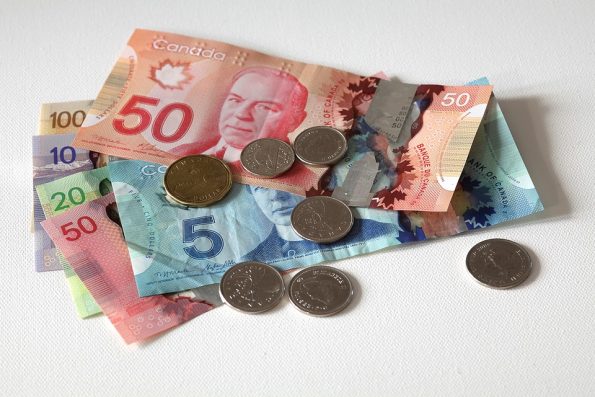No matter where you are in your financial journey, there’s never a bad time to cut down on expenses and save a few bucks.
Sometimes the budget is tight, and you can’t seem to find a way to hold it all together. However, before you seek a loan or get deeper into credit card debts, are you aware that there are small changes you can make in your daily life that can help you free up thousands of dollars?
In this write-up, we’ll show you 20 frugal living tips to save money in Canada.
If you look closely enough, you’ll find out that some aspects of your monthly expenses or daily living habits aren’t really necessary or just way over the top. We have gathered some of the saving habits of average Canadians that you can re-evaluate to save some money.
20 Frugal Living Tips for Canadians
In no particular order, here are our top 20 frugal living tips. Get your checklist and a pen ready.
- Skip the Tim Hortons drive-thru
There are only a few things that Canadians love as much as a classic double-double menu from their favourite coffee house. But take a step back, if you are opting for the drive-thru five days a week, you will end up spending over $500 on coffees every year! Probably not a lot if you’re not planning on being frugal.
So why don’t you brew your own cup of Joe every morning. You could easily cut down on a few bucks. More coffee, fewer costs! How better start to your day.
2. Re-negotiate your Credit Card Rates
If your credit card interest rate is 18% or higher? You should be getting on the phone with your bank. Many credit card companies are willing to drop their rates. A subtle threat to move your savings/pay-checks elsewhere is all it takes.
Your annual fees are also not off-limits. You should also be aware that many banks & Credit card companies could be willing to re-negotiate that as well.
Another way to pinch some pennies is to look for companies that offer zero-fees for the first six months.
Your credit card fees add-up over time. Take a closer look, make a few calls, and you could be on your way to saving hundreds of dollars annually.
3. Get your Car ready for winter
Sometimes, the best way to save some money might be to spend some – wisely.
When the winter season approaches, Canadians spend a lot more on gas.
But you can avoid this. During the coldest months, ask your mechanic to run a check on your vehicle(s). Fix your wheel alignment, change oil, check the battery etc.
Ensure your vehicle is running at peak efficiency during the winter season. You will be saving a lot of money on gas per mileage and general maintenance.
4. Stack up those Loonies and Toonies
Change makes a difference. Quite literally. If you stack up your loose change, it adds up over time! So, get a “coin jar” and start putting your coins away.
Each time you get a spare change, throw it your jar. Once the jar gets filled up, roll up to your bank to deposit it all. You may be in for a pleasant surprise.
5. Replace Snowblowing with Shoveling
Canadian winters can be brutal. It definitely not fun to spend time in sub-zero temperatures. But if you can help it, picking up the shovel can save you a lot of money on gas spending each winter.
And if you decide to invest in getting a snowblower, ask your neighbour (s) if you do their driveway for a small fee. This can help you to offset some of the cost.
6. Automate your Payments
Most banks, credit card companies do offer automated repayments options. If you have existing loans and credit debts, use automated repayments when it is available.
Asides from bank billings, you can also use it to pay for your phone bills or streaming services. Automating your payments will it ensure that you don’t have to worry about missing them. You get to clear up your bills on time. This will eventually lead to a boost in credit score.
An excellent credit score will save you a lot of money on interest rates whenever you do have to borrow.
7. Seasonal Shopping
You must have realized that certain types of foods are in season around specific times of the year. You can take advantage of this to stockpile what you need at low prices.
Depending on where you live, you might find out that some items are usually cheaper around certain period of the year. Typically, you can get Berries in the summer, apples during the fall or canned legumes during winter – they are usually sold cheaper during their growing seasons.
Plus, during some festive seasons, stores may offer products at knockdown prices. You can plan for this to do most of your essential shopping when prices drop.
However, you have to be strategic about it. You should ensure to buy only the things that you need.
8. Check the Thermostat
There is absolutely no need to be heating or cooling your home when you are not in it. Check your thermostat whenever you are heading out for long periods to make sure it is turned off. You will save some money.
Also, when you are home, adjust it as needed. Avoid leaving it at one temperature for months. You will get to save costs as the temperature fluctuates. You can also research more ways to save energy in your home.
9. Cook at Home
Everyone loves a nice take out. As tempting as it is, you’ll save a lot of cash if you cook more at home. When heading to work, pack your lunc. For date-night, shop groceries, cook a nice meal and have an indoor picnic! You’ll be having just as much fun – and save money.
10. Do simple car maintenance at home
Surely, complex car maintenance has to be left to auto-mechanics. But why not save a few bucks if you can do the simple things yourself? A quick YouTube search will take you through some DIY tutorials. You can learn basic things like oil change, tyre swaps and other minor fixes.
Likewise, Instead of heading to the car wash, you could also opt to get a gardening hose and wash your car right there in the driveway.
11. Work out at home
Do you love going to the gym? You can get a few equipments and start working out at home. A calorie burned in the gym counts the same as a calorie burned in your living room.
The monthly gym fees really add up annually. If you can afford the costly equipment, some empty cans and a mat would do just fine. You can find Youtube videos online to learn how to build your homemade gym equipment.
12. Check out the dollar store
If you need to pick up everyday staples, the dollar store is a great place to go. At your local dollar store, you get to find items like Ziploc bags, kitchen utensils, dish soap, and even seasonal decor. They are relatively cheaper than at upscale stores and shopping malls.
13. Get a library card
Books are quite pricey, and if you are an avid reader, the cost can really start to add up. To save some money, you can opt for a library card. For a flat-rate annual fee, you can read as many books as you want.
If you wish to read digitally, you can get some audiobooks for free at Audible. And if you have an e-book reader, Kindle offers so many free eBooks. Some cost just under $5. There are lots of cheaper options on the internet to feed your reading habits.
14. Get creative and DIY
If you have small projects to do around the house, you don’t always have to call a technician and pay $50/hour. You can create your home décor pieces, Paint your rooms or wash up your rugs.
You’d be surprised just how much you can by yourself if you make some effort. Especially if you have a big family, you can take advantage of basic home tasks to bond while learning new things together.
15. Cut out cable TV
Cable TV is expensive and can cost over $780 annually. There are a lot of cheaper alternatives that you can explore.
For instance, online streaming services will give you plenty of TV and movie options at a fraction of the Cable TV cost. Crave, Hulu, Disney+ and Netflix all charge as low as $9.99 per month.
By switching from Cable TV, you’ll be saving a lot of money without sacrificing your entertainment.
16. Use Coupons
Couponing is a great way to save a lot of money. Many Canadian stores offer diverse discounts and special deals. Next time you go shopping, ask the retail attendant for coupon deals.
If you shop online, you can also sign up to get newsletters from your favourites to be one of the first to know about new coupon deals. You can also click here to find ten websites where you can find high-value coupons.
17. Buy used-products when you can
Another way to save money is to buy used items. If you head to your local thrift shop, you can get quality furniture and household items for home decor, kitchen gear, etc at knock-off prices. It’s good for both the environment and your purse.
18. Buy holiday-décor in the off-season
Holiday decorations usually very expensive when the season rolls in. But they instantly go on sale the day after. So, If you need some nice decor for next year, the best time to shop for it is a few months before the holiday arrives.
19. Save your raises
Did you get a raise at work? – Congratulations! Instead of buying a nicer car or moving to a bigger house, consider saving or investing it. It is a great opportunity to put some cash away for rainy days.
20. Look for a bank account with no fees
Another way to really save a lot of cash is to stick your money in an account that doesn’t charge you any fees.
You get to save over CA$100 annually. It’s very easy, you can even open an account online and transfer your funds into it. Click here to find a list of Candian banks that offer zero-fee accounts
Other Tips:
- Cut down on your phone bill! If you’re working from home, you don’t need a lot of data on your phone. Call your provider to step down your plan.
- Price match at stores. Stores like Walmart allow price matching. You can use the popular Flipp app to find the best prices.
- Opt for a used car instead of a new one. Cars depreciate over time; new or used. So why not opt for a used car.
- Cut down on rent! A group of new immigrants we surveyed was able to save an average of $35,000 by simply renting cheap basement apartments.
Get a side hustle. Sometimes, saving isn’t just enough to meet your financial goals. In a world of side hustles, there are several things you can do to start earning an income.
Conclusion
Money is hard to come by, living frugally helps to cut out a lot of waste. You can save thousands of dollars annually by cutting out spending on things you do not need. Imagine just how much of a difference that could make to you right now.
However, it takes a lot of discipline and consistent efforts. Choose strategies you think will work best for you. If you’re consistent, you just might be a few steps closer to achieving your financial goals.












